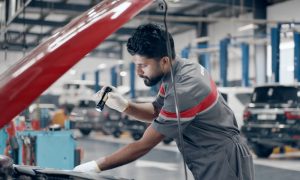What to do with a non-running vehicle?
Many car owners face a challenging situation when faced with a non-running vehicle. Cars that don’t start or operate properly can quickly become a burden, occupying valuable space and requiring expensive repair work. Addressing this issue can turn your non-running vehicle into an asset. Assessing your vehicle’s condition is imperative before making any decisions. Determine the extent of the problems and whether they can be fixed. Sometimes, a non-running car may only need minor repairs or maintenance to get back on the road. If the issues are more severe, you’ll need to weigh the cost of repairs against the vehicle’s value.
Consider repairing the vehicle
If the repairs are manageable and cost-effective, fixing your non-running vehicle might be the best option. Consult a trusted mechanic to get an accurate estimate of repair costs. Compare this to the car’s value once it’s fixed. If the repairs make financial sense, you can restore your vehicle to working condition and continue using it or sell it for a better price.
Sell it for parts
Many non-running vehicles still have valuable components that can be sold individually. If the cost of repairs outweighs the car’s value, selling it for parts can be a practical solution. You can either dismantle the vehicle and sell the parts online or to local auto shops or find a salvage yard to purchase the entire car for its usable components.
Recycle the vehicle
If your non-running vehicle is beyond repair and has no value, recycling it might be the most environmentally friendly option. Auto recycling facilities can properly dispose of hazardous materials and recycle various car components. This process reduces waste and conserves resources, making it an eco-friendly choice for dealing with your non-running vehicle. One increasingly popular option for dealing with non-running vehicles is selling them to specialized junk car buyers. These services often offer cash for cars regardless of their condition.
Clear out personal belongings
Regardless of the option you choose, you should thoroughly clean your vehicle before selling it. Ensure you remove all personal items from your home, including all documents, electronic components, and any custom accessories you may have installed. When disposing of a non-running vehicle, it’s imperative to handle all necessary paperwork correctly. This includes transferring the title, cancelling insurance and returning license plates if required by your local regulations. Proper documentation protects you from future liabilities.
Consider the environmental impact
Consider the environmental implications when deciding what to do with your non-running vehicle. Proper disposal or recycling can minimize the environment’s negative impact. Before making a final decision, explore all available options. Get quotes from different services, compare offers, and consider the long-term implications of each choice. What might seem the most straightforward option may only sometimes be the best in the long run?
Learn from the experience
Dealing with a non-running vehicle can be a learning experience. Regular maintenance and timely repairs can prevent major, costly problems. Whether you repair, sell, donate, or recycle your vehicle, each option has its own set of benefits and considerations Services that offer https://cashforcars-perth.com.au/ can provide a straightforward and convenient solution for those looking to quickly and easily dispose of their non-running vehicles.




